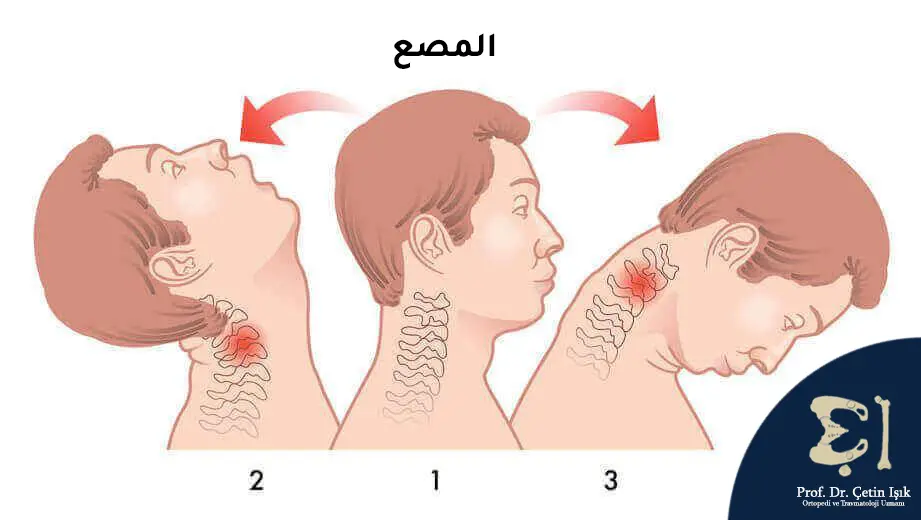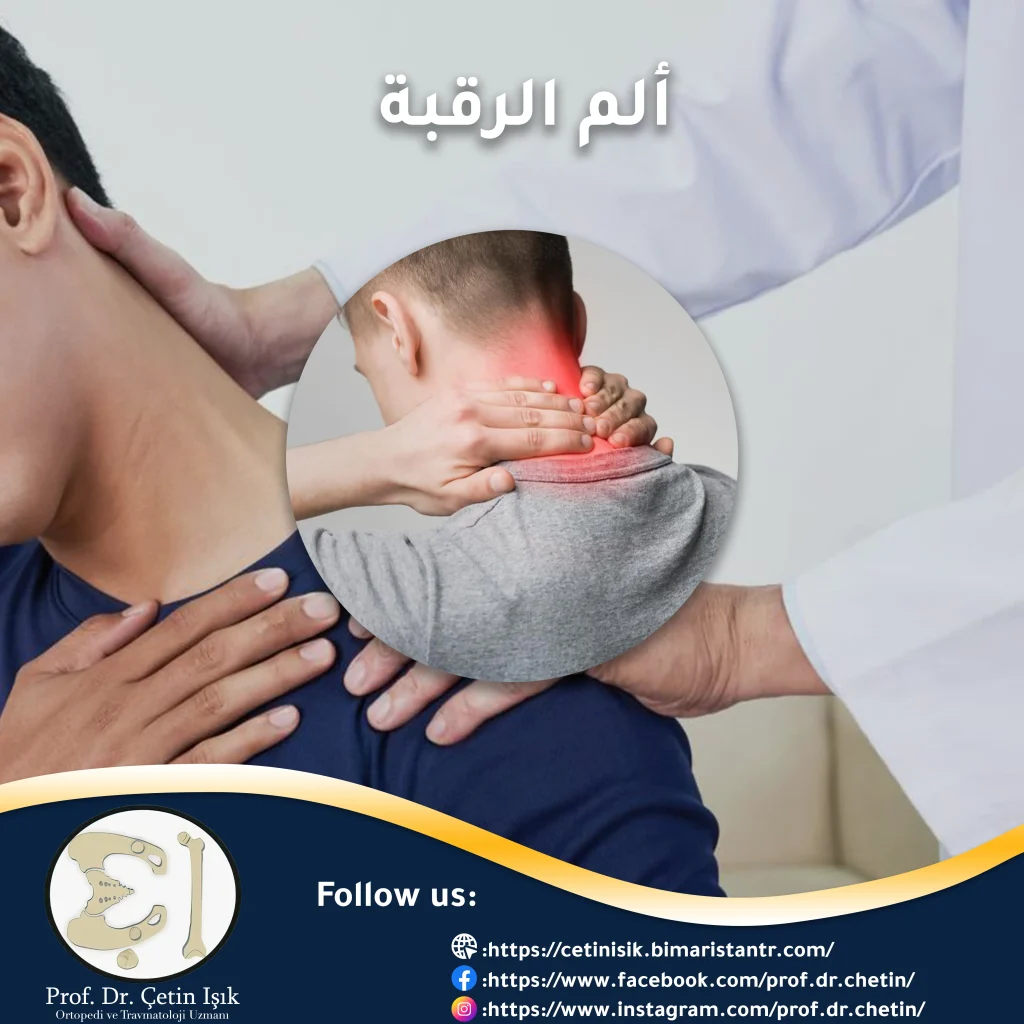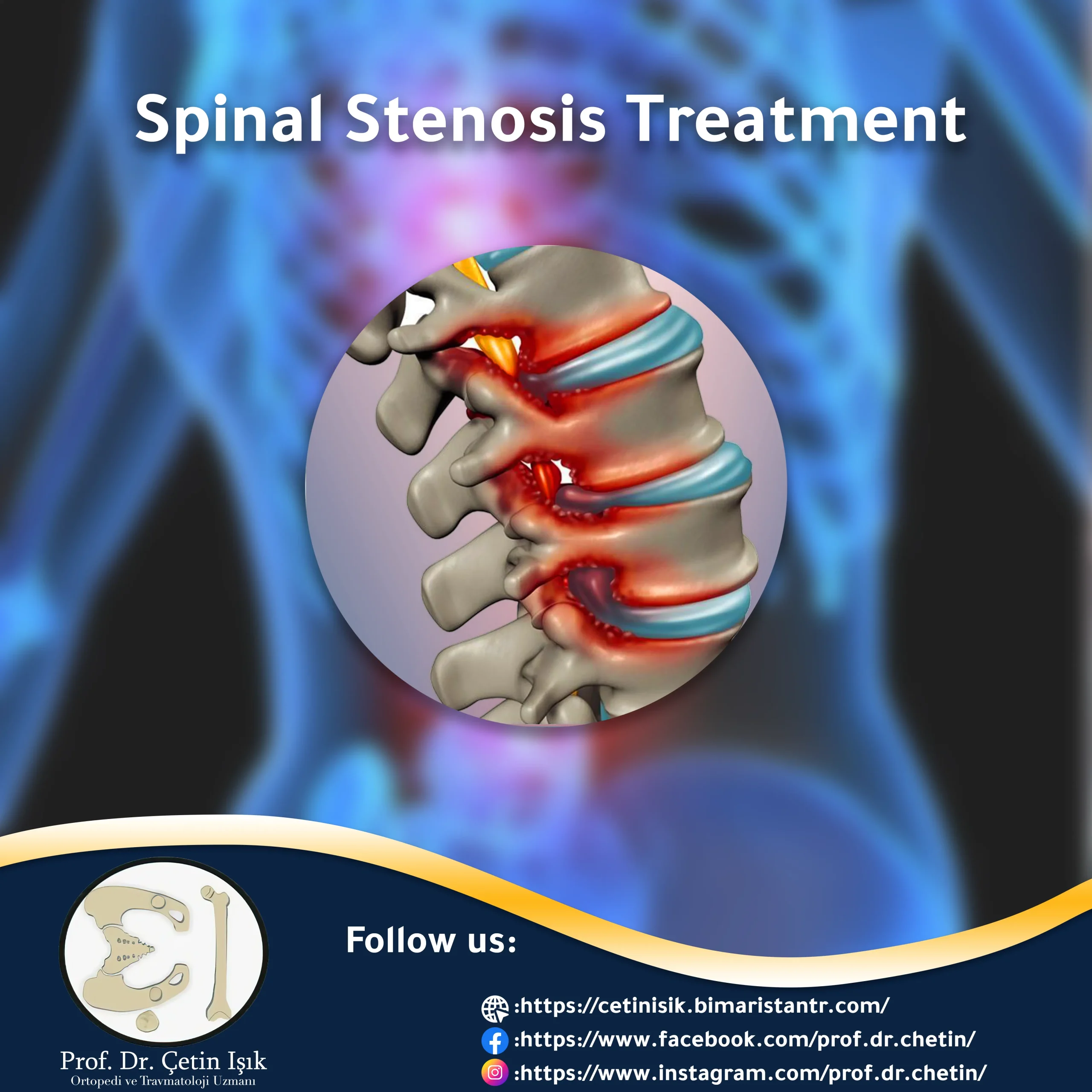Neck pain is a very common symptom that can result from many causes, such as stress, injuries, and various diseases, which affects daily activities and reduces the quality of a person’s lifestyle.
Neck pain can last several days or years, and may result from serious diseases such as tumors. Learn with us about neck pain, its causes, and treatment methods.
Overview of neck pain
Neck pain is pain in the area below the head and surrounding the cervical spine. It results from many causes, such as stress and inappropriate posture, and may result from serious medical conditions such as a herniated disc and tumors.
Neck pain can affect everyone, but it is common among those who sit for long periods at a desk or who spend a long time on electronic devices.
Neck pain is a common symptom because the neck bears the weight of the head and is therefore vulnerable to many injuries and accidents. The severity of neck pain ranges from mild to severe depending on the cause.
Neck pain can last for several days in simple cases resulting from stress and sleeping in a bad posture, and it may last for periods of up to several years in severe cases resulting from some diseases (such as tumors).
Causes of neck pain
There are many reasons why neck pain may present. Causes of neck pain include:
- Muscle strain: Stress occurs as a result of working at a desk for a long time without changing position or sleeping in an inappropriate position (neck pain after sleeping), which leads to neck pain.
- Injuries: Neck injuries are common, especially in cases of falls, car accidents, and sports activities. Whiplash is one of the most common neck injuries (sudden movement of the neck forward and backward).
- OsteoarthritisOsteoarthritis occurs with age as a result of chronic use of the joints, which leads to the formation of bony protrusions (bone fragments) that may affect the movement of the joints and cause pain.
- Rheumatoid ArthritisIt is an autoimmune disease that causes redness and swelling of the joints and neck pain
- Pressure on nerves: Pressure occurs as a result of herniated discs between the vertebrae (herniated disc), which leads to pain in the neck and upper extremities.
- Spinal stenosis: Spinal stenosis is caused by long-term arthritis, which leads to pressure on the spinal cord and nerve roots
- Heart attack: Neck and shoulder pain can occur as a result of a heart attack, especially if it is accompanied by chest pain and dyspnea (difficulty breathing).
- Other diseases such as meningitis and fibromyalgia
- Rare causes such as congenital malformations and tumors

Symptoms of neck pain
Neck pain can be accompanied by many symptoms such as:
- Neck stiffnessStiffness limits the range of head movement
- Numbness or tingling in the arms: If the pain is caused by pressure on a nerve
- Headache: Neck pain associated with headache may be a symptom of migraine
- Pain on palpation: Neck pain may increase when touching the cervical spine
Diagnosis of neck pain
Neck pain is diagnosed by knowing the patient's clinical history, which includes the onset and severity of the pain, in addition to a physical examination conducted by the doctor to evaluate head movement and pain upon palpation.
Some tests may be needed to accurately diagnose the cause of the pain, including a blood test (infections and infections), plain radiography (X-RAY) to evaluate cervical spine fractures, computed tomography (CT-scan), and magnetic resonance imaging (MRI) to detect a herniated disc.
Electromyography (EMG) may also be performed, which allows the doctor to check the health of the muscles and the nerves that control them.
Neck pain treatment
Treatment of neck pain depends on the underlying cause of this pain, and treatment options include home, medication, physical, and surgical treatment.

Surgical treatment
Most cases of neck pain can be managed with the previous treatment options, but surgery can be used in some cases, such as: Treatment of herniated disc Or put the vertebrae back in place.
Preventing neck pain
The occurrence of neck pain can be reduced by following the following tips:
- Avoid prolonged sitting in front of devices such as computers and mobile phones
- Sleeping in a correct and appropriate position so that the head and neck are in line with the body
- Do stretching exercises regularly to maintain muscle flexibility and strength
- Take breaks when working in an office
- Avoid carrying heavy objects on the shoulder
Neck pain is a common condition resulting from several causes, the most important of which are muscle strain and injuries. It is often self-limiting and resolves on its own, except for cases resulting from diseases such as a herniated disc.
Sources:
Common questions
Severe neck pain may result from neck injuries such as whiplash, or neck strain such as sitting for long periods on devices.
Neck pain can be a symptom of a stroke, especially if it is accompanied by chest pain and dyspnea (difficulty breathing).
Neck pain can be relieved through both home treatment, which includes rest, hot and cold compresses to relieve pain and inflammation, wearing a neck collar, drug therapy (over-the-counter pain relievers, corticosteroid injections, muscle relaxants), and physical therapy, which includes stretching and massage. And acupuncture therapy.
Nonsteroidal anti-inflammatory drugs (NSAIDs) such as ibuprofen are among the best medications for neck pain because they help reduce inflammation and reduce discomfort.




